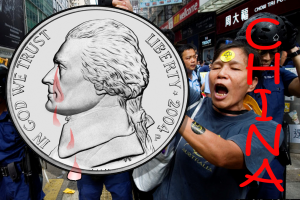 BEIJING, Aug. 7 (Xinhua) — As some countries and international media outlets are keen to hype up the South China Sea disputes, it’s imperative to point out such attempts do not help solve the disagreements. BEIJING, Aug. 7 (Xinhua) — As some countries and international media outlets are keen to hype up the South China Sea disputes, it’s imperative to point out such attempts do not help solve the disagreements.
And discussing bilateral disputes at multilateral meetings and dragging biased third parties into the debate only aggravate differences and conflicts. The thing about the hype is that distortion of facts and exaggerations always come with it. Speaking at the ASEAN Regional Forum (ARF), Chinese Foreign Minister Wang Yi said China felt it necessary to speak the truth and make its stance clear. So what has been hyped up about the South China Sea? For one, China has been groundlessly accused of militarizing the South China Sea and infringing on freedom of navigation. By carrying out construction projects in its own territory, China aims to provide services in maritime search and rescue, disaster relief and maritime safety. It has no intention to limit freedom of navigation. Notably, Washington is trumpeting the idea that freedom of navigation is being threatened to find an excuse for military actions that violate international law. Moreover, Washington has demanded China freeze its construction of civilian facilities in the South China Sea, while turning a blind eye to other countries’ occupation of Chinese islets and mounting military construction on them. The United States is not a party in the South China Sea, and it should think about how the issue will affect the big picture for Sino-U.S. relations. Wang Yi told the world that China welcomes constructive comments on maintaining peace and stability in the South China Sea. However, double standards are not allowed. China and the United States have reached consensus on building a new type of relationship between major countries, and they do enjoy tremendous cooperation on many international and bilateral issues. Their common interests lie in cooperation. What will help solve the South China Sea disputes? As Wang Yi proclaimed, China’s basic position is resolving disputes through negotiation and consultation on the basis of respect for historical facts and international laws, including the UN Convention on the Law of the Sea. China and ASEAN have agreed on the “dual-track” approach, which indicates that relevant disputes should be addressed by countries directly concerned through friendly consultation and negotiation. Sticking to this principle will help build consensus, while smear campaigns will do the opposite. Related: Chinese FM rejects Philippine, Japanese, U.S. claims on South China Sea issue KUALA LUMPUR, Aug. 6 (Xinhua) — Chinese Foreign Minister Wang Yi made clear China’s stance on the South China Sea issue on Thursday, rejecting the claims of the Philippines, Japan and United States. Speaking at the ASEAN Regional Forum (ARF), Wang said China felt imperative to speak the truth and make clear its stance as the South China Sea issue was raised by some countries at the ARF and the East Asia Summit Foreign Ministers’ Meeting earlier. Full story Commentary: U.S. “3 halts” proposal stirs tensions in South China SeaBEIJING, Aug. 5 (Xinhua) — The “three halts” proposal pushed forward by Washington during the ongoing Association of Southeast Asian Nations (ASEAN) foreign ministers’ meeting is nothing but a new trick to stir tensions in the South China Sea. Calling on halts in land reclamation, construction and “aggressive actions” that could further heighten tensions, the United States has, intentionally or unintentionally, ignored two simple facts. Full story Commentary: ASEAN meeting improper platform for South China Sea issue BEIJING, Aug. 4 (Xinhua) — The ongoing 48th Foreign Ministers’ Meeting of the Association of Southeast Asian Nations (ASEAN) in Kuala Lumpur, Malaysia, is not a proper platform for discussing the South China Sea issue but an important one for promoting regional cooperation. Top of the agenda of the meeting is the establishment of the ASEAN Community and the Post-2015 Vision, as the ten-nation bloc is in the final stages of realizing the goal of establishing an ASEAN Community that involves a plan to create a common economic, political-security and socio-cultural region by the end of this year. Full story |